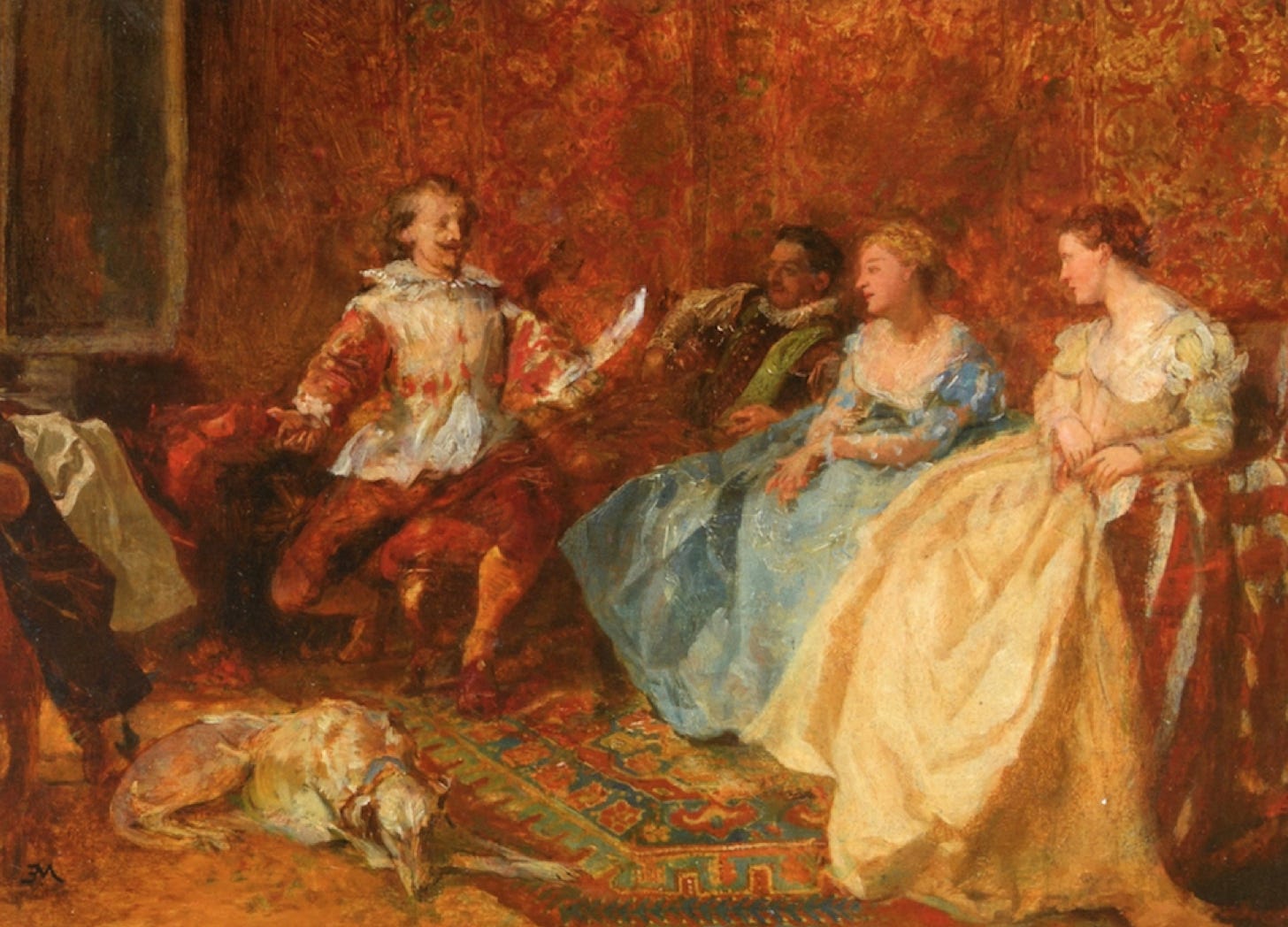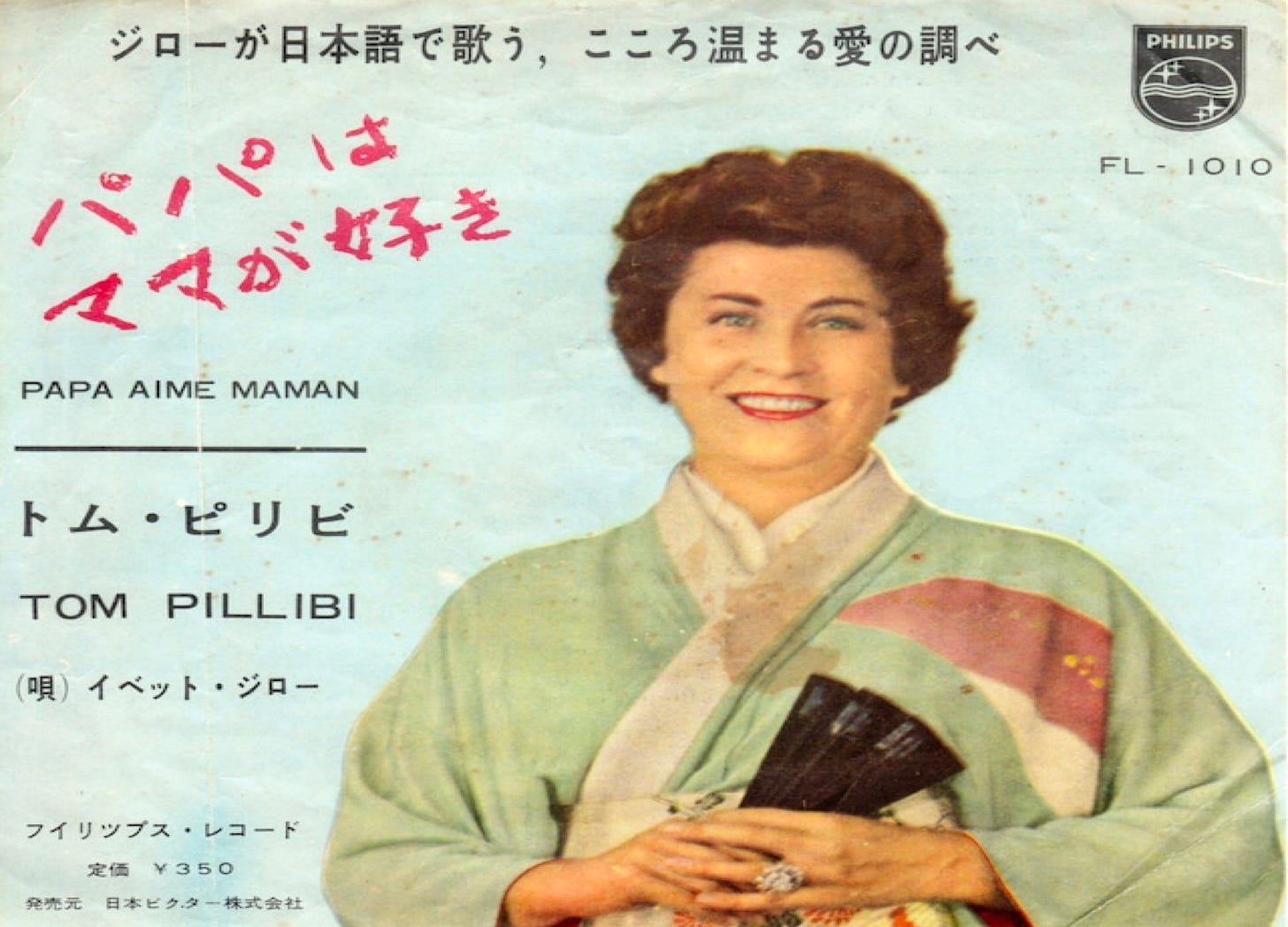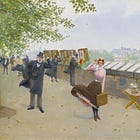When crossing from one language into the next, words will often lose some of their scope. That is, rather than covering, as it once did, a great deal of ground, the migrant appellation will limit itself to a specialized signification.
My favorite example of this phenomenon comes from Japanese, which uses the French word for a song of any sort to describe music of the genre made popular in the 1950s and 1960s by French chanteuse Yvette Giraud. Thus, when I lived in the Land of the Rising Sun, asking for chansons in a music store would reliably result in directions to a shelf that showcased the work of Lucienne Delyle, Lucienne Boyer, and, for those in the market for a good long cry, the immortal Édith Piaf.
Alas, and, indeed, alack, well-degreed men of low degree (hat tip to both Tanya Tucker and Helen Reddy) have found a way to exploit, for pretentious ends, this otherwise wholesome practice. Rather than repurpose an exogenous generic to describe a thing that needs a name of its own, these charlatans replace perfectly suitable English words with their exact equivalents in the lexicon of the aforementioned Madame Giraud.
Consider, if you will, the sad and sorry story of mentalité.
Once upon a time, in France, a group of painfully clever young men embraced an idea. ‘What if’, they thought, ‘we turned the academic study of history, which has long been a branch of stenography, into a kind of accounting?’
Inspired by this notion, these historiens began to tally up jars of olive oil, and trace the paths trod by said containers over the course of many centuries. Then, to fill the gaps between their tables and charts, they opined about the long-term effect of all this logistics on the way people thought.
In the English-speaking world, academic historians found it easier to talk about the work of the members of this club - known to those in-the-know as the ‘Annales School’ - than to imitate it. Thus, while refraining from the stubby pencil work required to practice this kind of history, they began to pepper their writings (and, I presume, their lectures) with the word 'mentalité. Moreover, they piled injury upon this insult to the intelligence of their interlocutors with public displays of the mental gymnastics they had employed to convince themselves that mentalité meant something other than ‘mentality’.
Marvelous to say, this exercise in pretension made its debut in a decade (that of the 1970s) in which English-speaking scholars in many fields stopped assuming that their colleagues would be able to read (or, at the very least, puzzle their way through) short passages in French. In other words, mentalité took root in the Anglophone academy at a time when the presumption that all historians possessed a working knowledge the language of Charles de Gaulle had gone the way of … well … Charles de Gaulle.
I am, of course, far too polite to suggest a connection between these two events. However, on days when I forget to add a drop of the milk of human kindness to my café au lait, I find myself thinking that the proliferation of mentalité in scholarly circles owes something to a reduction in the number of people able to see the word for what it is, the academic analog of the soupe du jour advertised on the coffee-stained, plastic-covered menu of a college-town greasy spoon.
For other articles in this series:
To Share, Subscribe, or Support:







